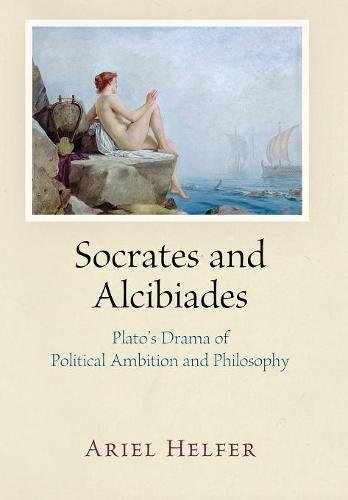

Most ebook files are in PDF format, so you can easily read them using various software such as Foxit Reader or directly on the Google Chrome browser.
Some ebook files are released by publishers in other formats such as .awz, .mobi, .epub, .fb2, etc. You may need to install specific software to read these formats on mobile/PC, such as Calibre.
Please read the tutorial at this link: https://ebookbell.com/faq
We offer FREE conversion to the popular formats you request; however, this may take some time. Therefore, right after payment, please email us, and we will try to provide the service as quickly as possible.
For some exceptional file formats or broken links (if any), please refrain from opening any disputes. Instead, email us first, and we will try to assist within a maximum of 6 hours.
EbookBell Team

5.0
100 reviewsIn the classical world, political ambition posed an intractable problem. Ancient Greek democracies fostered in their most promising youths a tension-ridden combination of the desire for personal glory and deep-seated public-spiritedness in hopes of producing brilliant and capable statesmen. But as much as active civic engagement was considered among the highest goods by the Greek citizenry, the attempt to harness the love of glory to the good of the city inevitably produced notoriously ambitious figures whose zeal for political power and prestige was so great that it outstripped their intention to win honor through praiseworthy deeds. No figure better exemplifies the risks and rewards of ancient political ambition than Alcibiades, an intelligent, charming, and attractive statesman who grew up during the Golden Age of Athens and went on to become an infamous demagogue and traitor to the city during the Peloponnesian War.
In Socrates and Alcibiades, Ariel Helfer gathers Plato's three major presentations of Alcibiades: the Alcibiades, the Second Alcibiades, and the Symposium. Counter to conventional interpretation, Helfer reads these texts as presenting a coherent narrative, spanning nearly two decades, of the relationship between Socrates and his most notorious pupil. Helfer argues that Plato does not simply deny the allegation that Alcibiades was corrupted by his Socratic education; rather, Plato's treatment of Alcibiades raises far-ranging questions about the nature and corruptibility of political ambition itself. How, Helfer asks, is the civic-spirited side of political ambition related to its self-serving dimensions? How can education be expected to strengthen or weaken the devotion toward one's fellow citizens? And what might Socratic philosophy reveal about the place of political aspiration in a spiritually and intellectually balanced life? Socrates and Alcibiades recovers a valuable classical lesson on the nature of civic engagement and illuminates our own complex political situation as heirs to liberal democracy's distrust of political ambition.